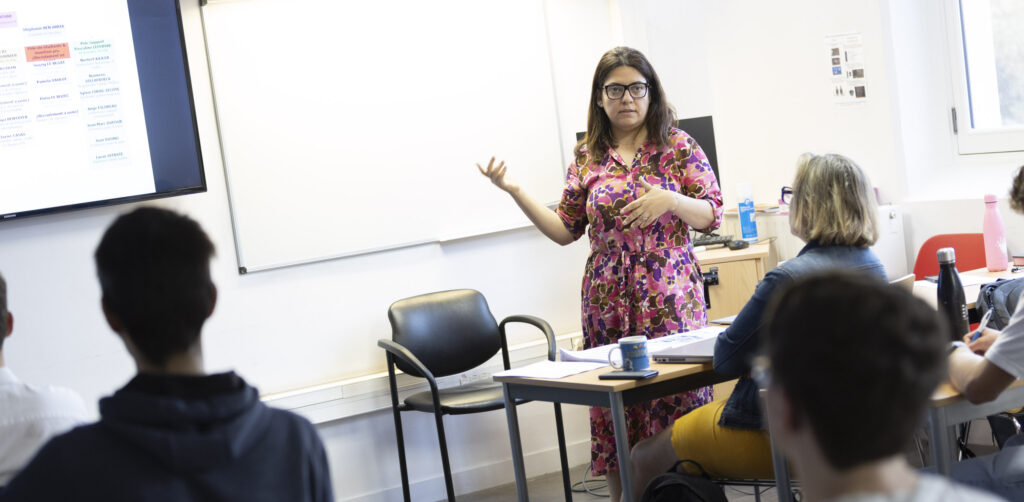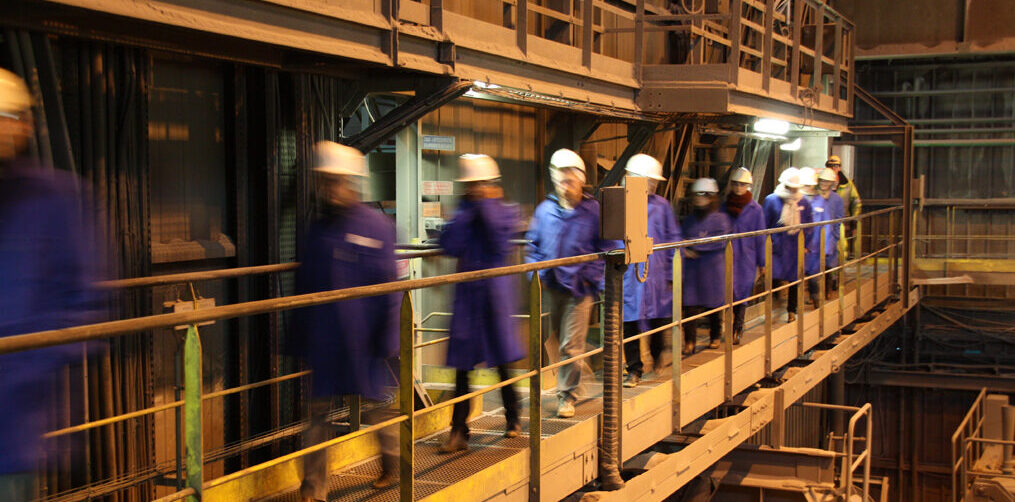The IS cycle: the program (FC)
The training cycle begins with a 6-month period, the harmonisation cycle consists of a period of refresher training. This is followed by a 2-year Engineering cycle leading to the award of the title of Engineer.

Harmonization cycle
Cycle I1
From January to September of year 1
Minimum 240 hours – Fridays and Saturdays
Classes are held at the School (Paris campus) on Fridays and Saturdays.
- Subjects: Mechanics, Electricity, Mathematics, Chemistry, Energy, Written synthesis.
Engineering cycle
1,200 hours – The program is divided into four modules:
- Regulation, control and networks (220 hours) : Measurement chains, automation and regulation
- Engineering Management Methods (300 hours): Project management, Functioning of organizations, Economic calculation, Team management, Technical synthesis and decision support
- Communication and NTIC (200 hours): English, information systems, communication
Energetics (360 hours): Thermodynamics, Machines, Heat and mass transfer, Fluid mechanics, HVAC engineering, Electrical engineering, Energy optimization
In-company training involves carrying out projects related to the training program. The acquisition of in-company skills is validated by the writing and oral presentation of project briefs.
Cycle I2
From September of year 1 to September of year 2
- Subjects: Project Management, Automation and Control, Engineering Office Automation and Programming, Heat and Mass Transfer, Industrial Electricity, Machines, Energy, Electronics and Information Transmission, Economic Calculation, Technical Synthesis and Decision Making, English.
Engineering students must write a short thesis describing the methods used in industry to solve a technical problem. This thesis represents approximately 250 hours of work and is accompanied by an oral presentation.
Cycle I3
From September of year 2 to September of year 3
- Subjects: Modeling, Energy Technology Project, Information Systems, Air and Environmental Quality, Acoustics, Reliability, Engineer Identity, Organizational Functioning, Purchasing, Oral Expression, Argumentation, English, Preparation of the engineering thesis.
The completion of the final thesis on an engineering project represents approximately 250 hours of work and is accompanied by an oral defense before the jury in order to obtain the degree.
Course details
| Harmonisation cycle | Energetics | Control, Command & Networks |
| 240 h | 398.5 h | 231 h |
| Mathematics | Thermodynamics and Machines | Automation |
| Electricity, Thermodynamics, Heat, Fluid Mechanics | Heat and mass transfer | Electronics |
| Mechanics, Physics, Chemistry | Air conditioning | Control |
| Synthesis | Industrial electricity | Information transmission |
| Building heating | Instrumentation, Sensors, Audit | |
| Technologies Project | ||
| NUCLEAR OR BUILDING AND RESOURCES OPTION |
| Communication & ICT | Engineering management methods | Preparing the engineering dissertation |
| 252 h | 225.5 h | 94.5 h |
| Synthesis and oral communication | Marketing, Purchasing | Industrial safety, Regulations |
| Technical synthesis | Economic calculation | Environmental law |
| Programming | Team management, Organisation, Employment law | Industrial safety |
| Engineering skills | Statsitics, Reliability, Maintenance | Propriété intellectuelle |
| Information systems management | Energy economics… | |
| English |


